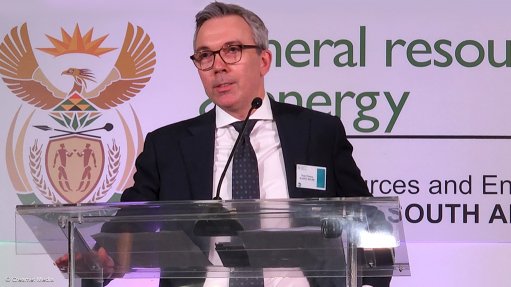
Scatec CEO Terje Pilskog
Norwegian entities, as existing investors with more than 3 GW of renewable energy projects in South Africa, are eager to facilitate more business between the two countries and further into the African continent, particularly as South Africa is undertaking regulatory reforms to liberalise its energy market.
In a panel discussion hosted by Oslo-headquartered renewable energy company Scatec on August 15, Norwegian ambassador to South Africa Gjermund Sæther said South Africa was a leader on the African continent, showing increasing potential for business-to-business cooperation.
Scatec CEO Terje Pilskog highlighted that many things were happening in the South African market that were paving the way for renewable energy penetration, not only in South Africa but also in other African countries.
For Africa to transition to a green economy and meet climate goals, a lot of private capital is required, with many discussions globally taking place on what it will take to unlock that capital, Pilskog said, adding that there was, however, still much risk attached to investing in Africa.
He mentioned political and credit payment risks as the most prominent ones, suggesting that projects needed to be adequately guaranteed and entities properly managed to ensure high returns on capital invested.
There are guarantees for renewable energy projects available through the World Bank, for example, but they are targeted towards large infrastructure projects and putting them in place often involves much bureaucratic red tape. To unlock a broader scope of projects in Africa and South Africa, in particular, Pilskog said it was important for investors to find more readily available guarantees for smaller projects.
He said other challenges that could hinder greater investment in the African continent’s renewable energy sector were lengthy permitting processes and getting offtake agreements in place, since most African countries only have one offtaker – a monopolised State-owned energy utility.
“Ultimately, investors need a predictable path for success with a project,” Pilskog noted.
Development finance institution (DFI) Norfund CEO Tellef Thorleifsson agreed during the panel discussion that regulatory challenges were generally an issue in Africa, particularly getting concessions and land rights.
He added that it was also often difficult to get co-investors on board with Africa-based projects, to which the solutions included working with local and international partners that understood the local context and had intimate links with politicians.
Thorleifsson said there were other ways for DFIs to support renewable energy development in Africa aside from funding projects, such as supporting early-phase studies of project developers or supporting research undertaken by larger companies that aim to unlock more African projects.
Another manner of supporting development on the continent was through guarantees, he said, adding that Norfund had started guaranteeing smaller projects with a mechanism agreed with a fellow international financial corporation.
“There are strong arguments to actually build more of these kinds of instruments and getting more capital into the risky investment areas,” Thorleifsson said.
Nordic universal bank Nordea sustainable finance chief analyst Thina Saltvedt agreed that investment risk was higher in many African countries than in the rest of the world, adding that loans and equity had not been able to mobilise private capital as effectively as green guarantees have in recent years.
Commenting on how countries or companies could manage to collaborate with an institution such as Nordea, she said the bank preferred to scale projects where there had already been a degree of success. It also preferred working with partners that were confident and knowledgeable about investing in risky markets, with intimate experience of the local context.
Norwegian development cooperation agency Norad director-general Bård Vegar Solhjell said that, despite Africa having 60% of the world’s solar resources, the continent only has 1% of installed solar photovoltaic capacity globally.
“There is an island in the UK that has more solar capacity than the whole of Africa. This while energy use will double on the continent by 2040.
“To realise universal electricity access in Africa, about $25-billion of investment a year is needed. By getting the risks right, and working with the right institutions, this investment can be unleashed. Africa needs institutions worth investing in,” Solhjell explained.
In response, South African ambassador to Norway Delores Kotze said South Africa was not blind to the risks of investing in the country. One major risk, she noted, was that of rising unrest over coal mines closing down and jobs being lost as the energy system transitions away for coal-fired power.